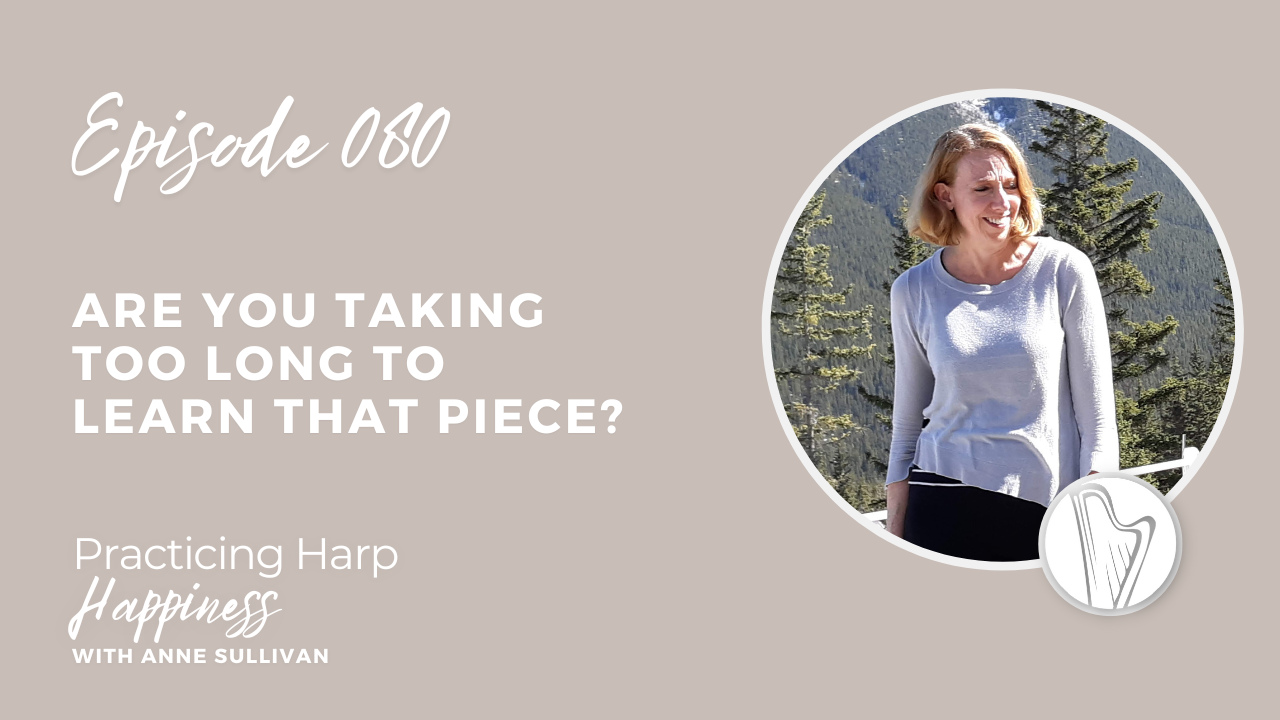#080: Are You Taking Too Long to Learn That Piece?

“How long should it take to learn a piece?”
I am asked that question so many times and every time my heart sinks. Why? First of all, there’s that word “should.” There are no “shoulds” in the learning process. The word “should” leads to the idea that there is one standard against which we could judge our efforts and which we could use to plan our music learning. An objective standard, such as “this piece will take any harpist three months to learn,” is absolutely impossible. So the word “should” isn’t helpful.
But even if we reframe the question in very specific terms - “how long will it take me to learn this piece?” - we still run into difficulties trying to come up with an answer.
Each harpist is unique, bringing a unique set of skills and experiences to their music. Each piece has challenges that are specific to that piece which may test an individual harpist’s skills differently. Plus, anyone’s progress on any piece will be affected by their practice time and practice habits, their learning style, even by how much they like the piece.
Then there’s the question of what we mean by “learning a piece.” Do we mean performance-ready or memorized? Or do we mean that we have the notes fairly reliable but maybe not up to tempo? Or do we merely mean that we’ve spent enough time working on it that we’re ready to call it done?
But even if we accept the fact that there is no definitive timeline or clear end point for learning a piece, we can still explore the various factors in the process. After all, once we know what affects our learning speed, we can work at developing the skills we need to help us learn faster.
On the show today, I will share the timeline professional harpists use for learning their repertoire and talk about how you can adapt that for yourself. Plus, I’ll review my famous “conveyor belt system” that helps you see the stages of development that any piece goes through and I’ll even give you some timelines that you can experiment with to discover how you learn best. There’s an extra bonus for you too; when you learn a piece faster, you often play it better too. That sounds good to me, and I bet it sounds good to you too!
Links to things I think you might be interested in that were mentioned in the podcast episode:
- 12 Days of Harp Happiness event
- Related resource Practicing Differently: 4 Steps to Faster Learning blog post
- Harpmastery.com
Get involved in the show! Send your questions for future podcast episodes to me at [email protected]

